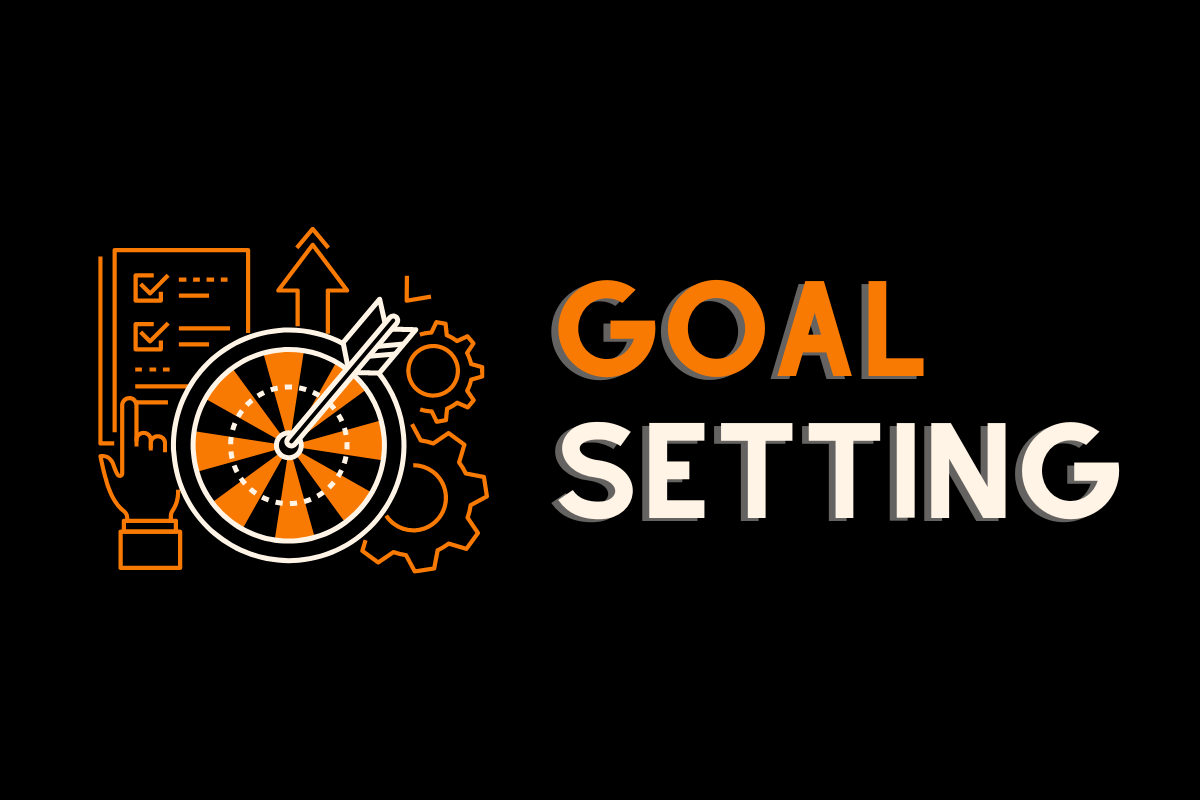Many don’t realize that goal setting is one of the simplest ways to create your own happiness. While one might think that achieving any goal you set out for yourself is the definition of success, what truly brings us self-satisfaction and a sense of purpose is the process itself of working towards a goal, which basically means enjoying the journey.
Thankfully, defining our goals, setting them and establishing a plan to achieve them is surprisingly simple, yet the rewards of the process itself can have a staggering impact on improving our quality of life. This is because while our goals are what we aspire for, it is the actions we take to achieve them that is actually what we want for ourselves and what will give our lives a sense of meaning.
The truth is in most cases, goal setting, whether it be personal goals or professional goals, is achieved through cultivating the right habits that will allow you to do so. Habits determine everything in our lives and especially whether or not we will achieve the goals we define for ourselves.
Our goals are what inspire and drive us to create change. They can be what inspires and motivates us to put in the effort to make the positive changes we seek for ourselves. And while achieving our goals may be the end-game, for many it is the process of working towards something with purpose that is actually the most rewarding part.
Goal setting gives purpose and direction
Goals are desired outcomes or targets that individuals or organizations strive to achieve. They provide a sense of direction and purpose, guide actions and decision-making processes. Goals can be short-term or long-term, specific or broad, and they can vary across different aspects of life, such as personal, professional, educational, or health-related goals.
Setting goals is an important practice as it helps individuals and organizations define what they want to accomplish and create a roadmap to reach those objectives. While following that roadmap, goals provide motivation and focus, which are elevated states of being and when successfully attained can give us a profound sense of achievement.
How to start goal setting
Goals can be set in any area or context of life. From personal, health-related to educational, financial, professional to social, we can create goals for anything we want to achieve.
For some palpable ideas, goals could be running a marathon, quitting smoking, learning a new skill, traveling somewhere, achieving a specific job position, saving money or starting a business. While the sky is the limit on what you choose to define as your goals, there are a number of guidelines that can help make you more successful at actually achieving the targets you set for yourself.
There is an extremely helpful acronym that serves as a guideline for how to set goals that are easily fulfillable and that is SMART: specific, measurable, achievable, relevant, and time-bound. This framework helps ensure that goals are well-defined, realistic, and have a clear timeline for accomplishment.
Sometimes people can set themselves up for failure simply due to having unrealistic expectations and setting goals that are not easily attainable. The whole point of goal setting is working towards achieving them and this is why it is vital to choose goals that are attainable in order to set yourself up for success.
8 tips for goal setting
1. Ask your emotional “Why”?
We all have things we want to achieve, but having a deeper understanding of what your goal stands for will increase your drive to achieve it.
If your goal is to go vegan let’s say, if you add to this choice the notion that it will cause less suffering of animals or can be a step in combating climate change, then you have a deeper reference point to refer to that may assist in motivating you to continue if ever you feel yourself wavering.
2. Align with your values, vision and mission
Whatever your goals are, and especially if they are personal, professional or social goals, it is important to make sure they are aligned with your core values, the vision of your future and your mission in life to give them a greater meaning and to bask in the knowledge that fulfilling your goals is what will keep you track with what you want to achieve in your life.
3. Challenging but not overwhelming
One of the fastest ways to stray from your goals is to make them near impossible to achieve. We can get excited about setting goals such as running a marathon, but if someone has never had a running practice before then it may be worth considering signing up for a half-marathon first, which as the name suggests, will make realizing that goal half as hard.
Similarly, if the goal is too easy, then we may not see enough change in our lives that provides the rewards of why we began in the first place. Find that delicate balance of having your goals be challenging but not overwhelming.
4. Don’t depend on willpower
As the steps to achieving our goals are most likely based on the habits we cultivate, there are steps we can take to make the new actions we want to take easier, and ideally automatic. Controlling your environment and setting the stage are two easy ways to help staying on track without having to rely on willpower.
If, for example, you want to quit eating gluten, then replacing gluten-based products with gluten-free options in your cupboards will make that goal easier to achieve. If you want to start doing yoga, then set the stage by having your yoga mat ready and visible and create or go to an inspiring place to do your practice.
5. Make goals measurable and trackable
As the saying goes, “You can’t improve what you don’t measure.” This is especially true when it comes to achieving goals. In order to measure your success you need to know your starting point and have a method of tracking your progress.
In order to make a goal measurable it also needs to be specific. Such as, instead of saying to yourself, “I want to lose weight”, you will be able to measure your success if you are specific, which in this case could be for example wanting to lose 20 pounds. Establish a tracking system in which the action of tracking becomes part of the process.
An example of how to track in the case of losing weight, could be weighing yourself once a week and writing the number that shows up down on a calendar.
6. Have a realistic timeline
Set yourself up for success by realistically designating how much time it will take to fulfill a goal and create an action plan accordingly. Having a timeline and establishing a deadline will create a sense of urgency and help you stay accountable. Be realistic with your timeline and consider external factors that may influence your progress.
7. Break bg goals into mini-wins
You don’t have to wait until you realize your goal to award yourself for achievements. Establish interim wins in which you can celebrate your achievements and reward yourself occasionally for staying on track. If your goal is to write a book for example, then you could decide to reward yourself with a gift or an adventure after finishing each chapter.
8. Troubleshoot and problem-solve
Let the saying, “Make it work and then make it better” be your mantra in order to make troubleshooting and problem-solving part of the process. You may find that there are ways to optimize the habits that will get you to your goal and instead of seeing any fallbacks as failure, use the opportunity as a lesson in how to tweak your process to optimize it.
Envision the future
Call it the “Law of Attraction” or simply choosing to be happy now, one of the most critical steps of achieving what you want is imagining how it all unfolds in the future. You don’t have to wait until the goal has been achieved to begin reaping the benefits of having created it. By concentrating on what you want to achieve, you make room for it in your life and begin living accordingly.
In the same vein, by practicing what it will feel like when you achieve your goal, you create a positive energy that will assist in making realizing any goal easier.
We can all get downhearted occasionally and obstacles can surface that may set you back, but keeping your eye on the prize, holding your head up high, your heart hopeful and negative emotions in check, is a mindset that will make you more resilient to the ups and downs that like ocean tides are an inherent part of nature.



